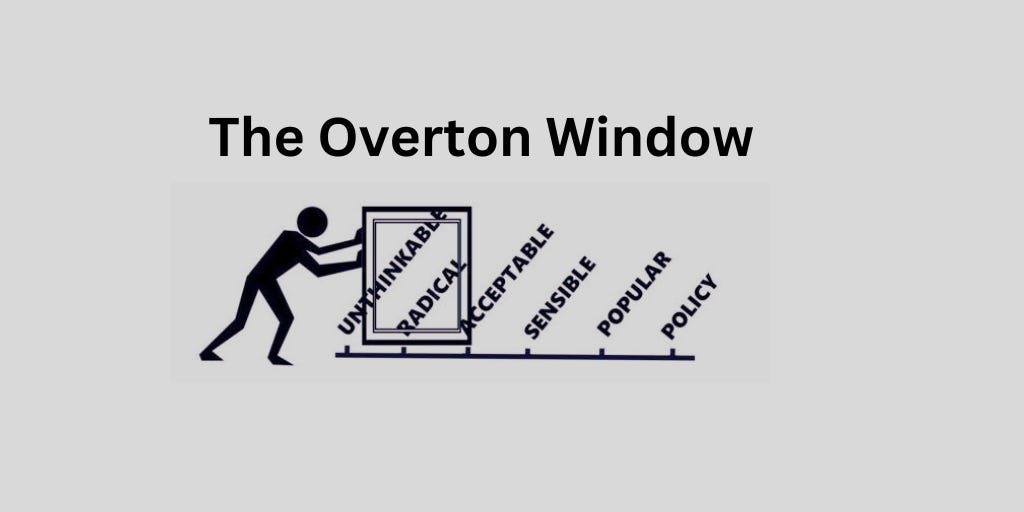Hello! This paper gives a outline of the Political Industrial Complex, describes its outcomes, and gives a potential path out. Political actors of all kinds benefit from its conclusions and those who make it to the end may even save a few dollars.
Non-Profit Industrial Complex
I first learnt about the non-profit industrial complex (NPIC) early in my university education. Once educated on the process in which these systems uphold the strength of capitalists in our societal arrangements, I could no longer donate my money or time to multinational charities.
This once easily defined multinational issue has increasingly found its way closer to home. I hear more and more about how even local charitable organizations are miss-treating, underpaying, and generally treating their labor poorly. Friends, family, and loved ones that work for hierarchical non-profit organizations that have missions to 'eradicate poverty' have their caring nature exploited routinely. The homeless shelter has homeless people on staff.
We are starting with the NPIC because it is a much more common idea and often plainly evident. It is mirrored almost perfectly by the rise of dollars in the Political Industrial Complex.
Political Industrial Complex
Do you work in progressive politics? Do you feel burnt the heck out? Does it feel like you are being asked to sacrifice more of your time, health, and dollars to continue the movement?
The same processes that back the NPIC are now being reflected in political movements. The birth of the Political Industrial Complex (PIC) is already behind us and it is now at a accelerated pace. It is happening everywhere, however we are feeling it pointedly in Alberta, as rules around elections are being loosened and the purse strings are being flung open.
Politics and business are now inextricably linked in a political industrial complex. Which is why, when we shout to “get money out of politics,” we miss the larger structural issue. Today’s political system is an industry. Just like today’s defense industry has an incentive to increase our military budgets, so too the political industry has an incentive to increase political spending. And the more the divisions and dysfunction, the more the need for spending. - David Dobson, Forbes Magazine, 2021
Now it has always been true that politics and capital are tied together, however it is becoming more and more outright. Politician is now becoming a excellent way to enrich oneself.
The political class, especially those who are capitalists, are getting richer by the moment. Capitalists understand intrinsically that paying their people more, and enshrining their enrichment through public contracts, creates a lifelong soldier.
I am going to ask for a raise that matches the max political donation I can give. Ill get a bunch back on my taxes anyway - Staffer Somewhere
As political action becomes more abstract and more money becomes involved, it starts to centralize under different organizations who have the knowledge or means to communicate on scale. These organizations are hierarchical; they have a board, a executive director, and a staff. They use proprietary tools, guard lists of members, and have "war chests". The growth of these systems becomes the mission because "that is how we will realize change".
Often the front-line people working in these systems are no different then the people working in the NPIC. They give more than the get; under the conditions of capital it has to be so.
If we could just spend enough dollars, we would win that vote, and we would be able to make that change.
The capital having class already has this down to a science. Those who are okay with being funded by authoritarians are making hay. If you are a young, white, and impressionable youth, apartheid regimes would love to tour you around. Are you a blusterous conservative white man? Have you considered starting a YouTube channel and selling cruises?
This sort of political arrangement exclusively helps capital. The capital class will always have the funds to outbid their contemporaries. They enjoy the lavishness of politics, while progressive organizations burnout.
As such, organizations are forced to drift towards capital. They become reliant on the "good rich folk" in their movements.
Birth of the Champagne Socialist
This drift towards capital works to enshrine the shifting of the overtone window. Organizations often become reliant on a older, white, and rich group that came into wealth during the most exploitative years of colonial capitlaist government. If you look around the room at a fundraiser for these types of organizations, it is so blatantly evident, that it is almost comical.
Essentially this births the champagne socialist. The political actor who is all for helping the poor, unless of course a low income apartment dares to be built to close to their home. Climate change donors who drive SUV's and spend winters in the Bahamas. Rich white gays who got their freedom and now can't understand why the "trannies" are causing such a fuss.
Almost always, the issue of incrementalism becomes the central tension in these spaces. Organizations make sure they don't upset the sensibilities of their richest donors. These rich donors, no matter how great the intentions, impress their individual priorities. They cannot help themselves; they are of a different class. Serving them simply pushes the window towards their interests, which are those of capital.
Eventually you get socialist parties that are pro-pipeline.

The Role of Digital Tools in the PIC
Running political organizations is quite expensive. The tools that they use are rising in cost every year; it is not uncommon for even the smallest politically minded organization to be spending thousands of dollars on software. Lots of them have subscriptions that are more costly then their rents.
As you can imagine, as a organization grows, so does their reliance on these expensive systems. As those systems cost more every year, they need more dollars to maintain their lists. They ask their rich donors to continue the fight, as they are growing, and obviously this leads to better results. Their rich donors give. Rinse and repeat.

The tools that people use in organizing are overwhelming of corporate origin. It is always shocking to come across a anarchist collective that uses Google services. Chatting with socialists who use Microsoft (the single greatest monopolistic capitalist force alive today) is surreal. It is incredible to listen to people preaching 'buy local' while using Mailchimp. Organizers who would scoff at using a non-union printer but scream on X.
I have written extensively on this topic; these types of organizing tools are not safe for people resisting capital.
Facebook/X/Google/Microsoft/Nationbuilder the moment political organizations give them their money and data
These software as a service providers in the political arena are massive drivers of the PIC. They use variable pricing to get the most they can from everyone involved. They employ armies of lobbyists, salespeople, and executives to preach their ability to generate value. They make their money by extracting capital from the local economy.
These software providers are not ideologically aligned in any way; communists, royalists, anarchists, and movements of all kinds are sucked into their systems. It is how capitalism is able to feed of the intentions of all political movements; by disguising itself in the beeps and boops of our computer systems.
The problem is that these corporate software's are effective. A single human is able to communicate to hundreds of thousands of people at damn near the speed of thought. Truly the stuff of wizards. Like all fantasies though, when a hero is handed power beyond imagination, it almost always has some sort of corrupting influence.
That is the how these corporate software work. Like some sort of demon, they offer the user their wildest dreams, without ever actually explaining what the user gives up.

How do we get out of the complex?
I want to encourage all political organizations that find themselves in this predicament to not worry too much about it; continue to spend those rich peoples money. Build those lists. Send them emails. We need some kind of bulwark against the slip towards fascism. Just understanding ones position in the system makes for better outcomes. We need to recognize though:
Socialist movements will never be able to outspend capital.
Thinking in terms of return on investment for the votes serves their interests. Playing that game only builds the systems that further generate inequality. It is a closed loop that paradoxically needs growth to survive.
It also is what is burning out organizations and people. When you are not able to properly staff a campaign or political organization, it falls hard on those trying to do the work. Hierarchy and central command is how the capitalists organize because they have the funds to do so; it isn't actually all that efficient. Emulating these methods of organizing, especially if you use their tools, undermines socialist movements.
Luckily, there are other paths.
To escape capitalism, particularly in the digital age, we need to start distributing tools that allow anyone to build a political movement. We need to have more faith in the average persons good nature. We need to empower people to share their thoughts, generate their own lists, and speak directly with their neighbors. We need to create the conditions for emergent political actors who are class conscious. We need less leaders and more doers. We need to distribute the campaign as widely as possible.
A thousand neighborhood mailing lists has the potential to have more impact than any single organization could have.
If every union member was trained on simple digital tools, they would be able to speak to all their neighbors with relative ease. If every public servant was able to post their war stories from the ER, we would have a stronger collective understanding of their work. If every student could express themselves, we would further knowledge exponentially.
It is not the strength of our leadership that breaks our chains; it is the strength of our neighbors.
Build, Teach, and Distribute the Tools.
We know that workers rights in Canada where largely won at a time when distributed tools and knowledge (coming home from the war workers had the knowledge on how to mount a literal campaign with real weapons) was prevalent. Anyone in the movement could lead the movement and make the impact necessary to see results. As a unit, all where strong, and all where uplifted.
To escape the PIC, socialists, and those interested in a more free and just world, need to design tools that anyone can use, teach others on how to use them, and distribute them. In a knowledge, data, and debt based economy, giving people access to the same tools that our political organizations have is key. If we can make those tools free, then we will be able to undermine capital, and the vulture systems that are extracting wealth form our movements.
Workers, with the right tools, will build the future.
Luckily, there are entire communities dedicated to this work. A couple quick examples:
Free and Open Source Software List
We, as a collective, are dedicated to sharing our knowledge. This repo is our prime example. If you are reading this, all the information you need to get started is here.
bnkops is working on it
You can read some of our progress here:
Why not give it a shot?
You, dear reader, are likely a political actor. I encourage you to consider learning how to do the work of communicating on scale without the use of corporate software. You will have greater data security, spend less money, and not be beholden to a behemoth that doesn't know your name. Just like a good fantasy story, the hero that learns the tools, instead of being handed them, almost always has the final advantage.
We have nothing to lose but a expensive subscription or two.

